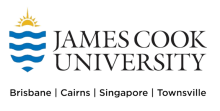The retraction of a paper from top-flight journal Science has raised new questions about research practices at the Queensland institution where the lead author did her PhD.
The 2014 article “Chemically mediated behaviour of recruiting corals and fishes: A tipping point that may limit reef recovery” was retracted at the request of the University of Delaware, where first author Danielle Dixson is an assistant professor of marine ecology.
Science had flagged data manipulation accusations in an “editorial expression of concern” posted in February. The university has now informed the journal that it “no longer has confidence in the validity of the data” underpinning four of the paper’s figures.
The university told Times Higher Education that it had made findings of research misconduct in relation to the Science paper and two other articles, which it had also asked to be retracted. It declined to identify the journals involved but said it had reported its findings to them and to “relevant federal agencies”.
Doubts about Dr Dixson’s research emerged some years ago. In early 2020, three papers she had co-authored – including the Science article – were among 22 research publications “comprehensively and transparently” debunked in a three-year replication study published in the journal Nature.
Its seven authors had been unable to reproduce studies suggesting that ocean acidification caused by mounting carbon dioxide concentrations would undermine small fishes’ ability to avoid predators.
A 2021 Science magazine article detailed claims laid against Dr Dixson by former colleagues, including that she had duplicated data and had not spent enough time in the lab to perform experiments described in her published work.
These allegations resemble those levelled against fish ecologist Oona Lönnstedt, who lost her job at Sweden’s Uppsala University after being found guilty of fabricating data in a 2016 paper in Science.
Both Dr Dixson and Dr Lönnstedt obtained their PhDs at Queensland’s James Cook University (JCU) under the supervision of marine biologist Philip Munday, who recently retired. Professor Munday is co-author of seven articles targeted in the replication study, including two involving Dr Dixson.
JCU has commissioned external investigations of the research Dr Lönnstedt conducted during her time there, and of a 2014 study co-authored by Professor Munday and Dr Dixson in Nature Climate Change. Neither probe made findings of research misconduct, and JCU does not believe it was involved in any of the research investigated by the University of Delaware.
Critics say JCU’s investigations have overlooked the “big red flags” reported in Science magazine. “They need to go back to the drawing board and look into this a bit more carefully, because that’s two cases at JCU now that have taken forever,” said Carleton University research fellow Dominique Roche, a co-author of the replication study and one of seven whistleblowers who raised the initial misconduct allegations against Dr Lönnstedt.
“Uppsala University found Oona Lönnstedt guilty of data fabrication after she left [JCU] and now the same thing with Danny Dixson. Everything leads back to these two people being in Phil Munday’s group at JCU. The missing aspect of this whole investigation is, when did they start fabricating data? It seems like JCU doesn’t really want to look into that because they’re probably concerned about what they’re going to find when they start digging.”
THE was unable to contact Professor Munday, who is understood to be travelling internationally. He has previously denied participating in or observing research misconduct, and has strenuously contested the findings of the replication study.
Dr Dixson did not respond to a request for comment. The University of Delaware said there had been no change to her employment status in the wake of the misconduct finding.
Register to continue
Why register?
- Registration is free and only takes a moment
- Once registered, you can read 3 articles a month
- Sign up for our newsletter
Subscribe
Or subscribe for unlimited access to:
- Unlimited access to news, views, insights & reviews
- Digital editions
- Digital access to THE’s university and college rankings analysis
Already registered or a current subscriber? Login










